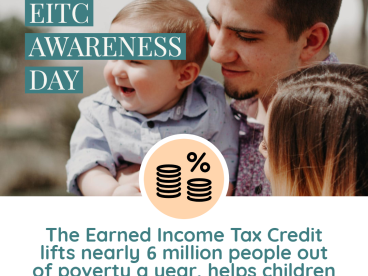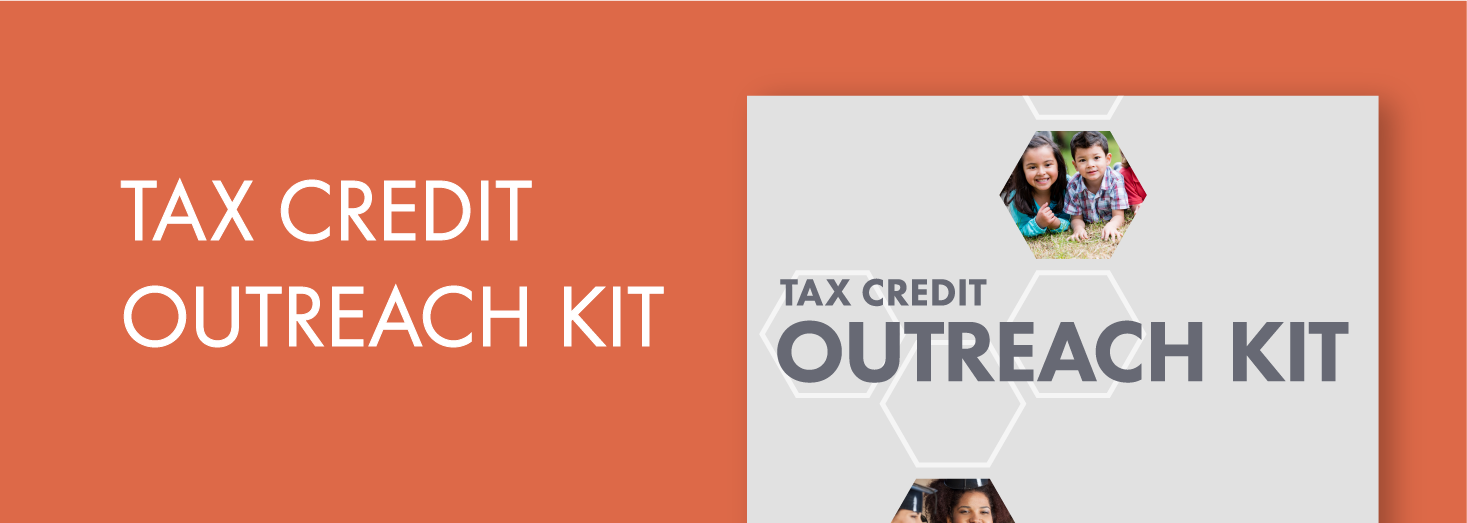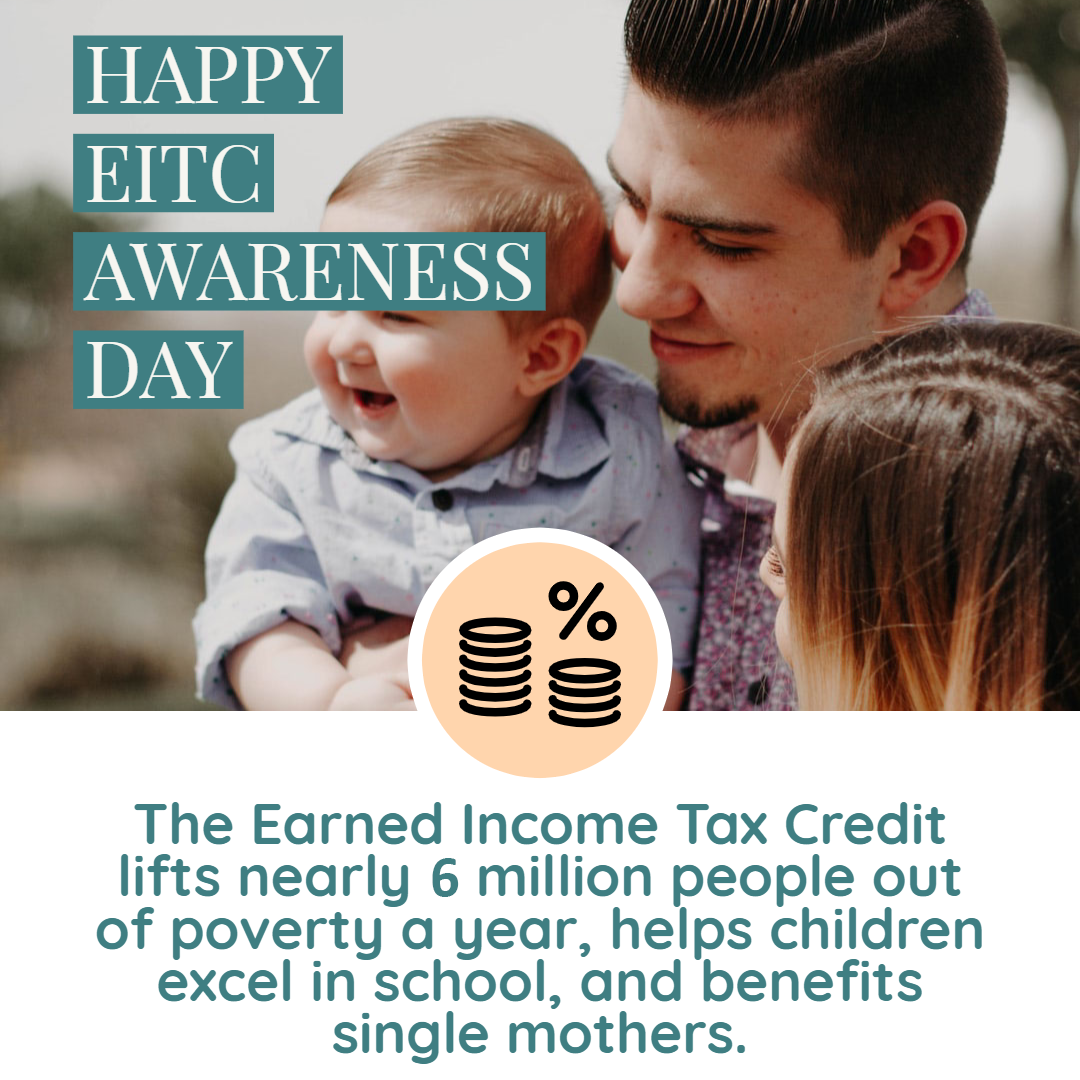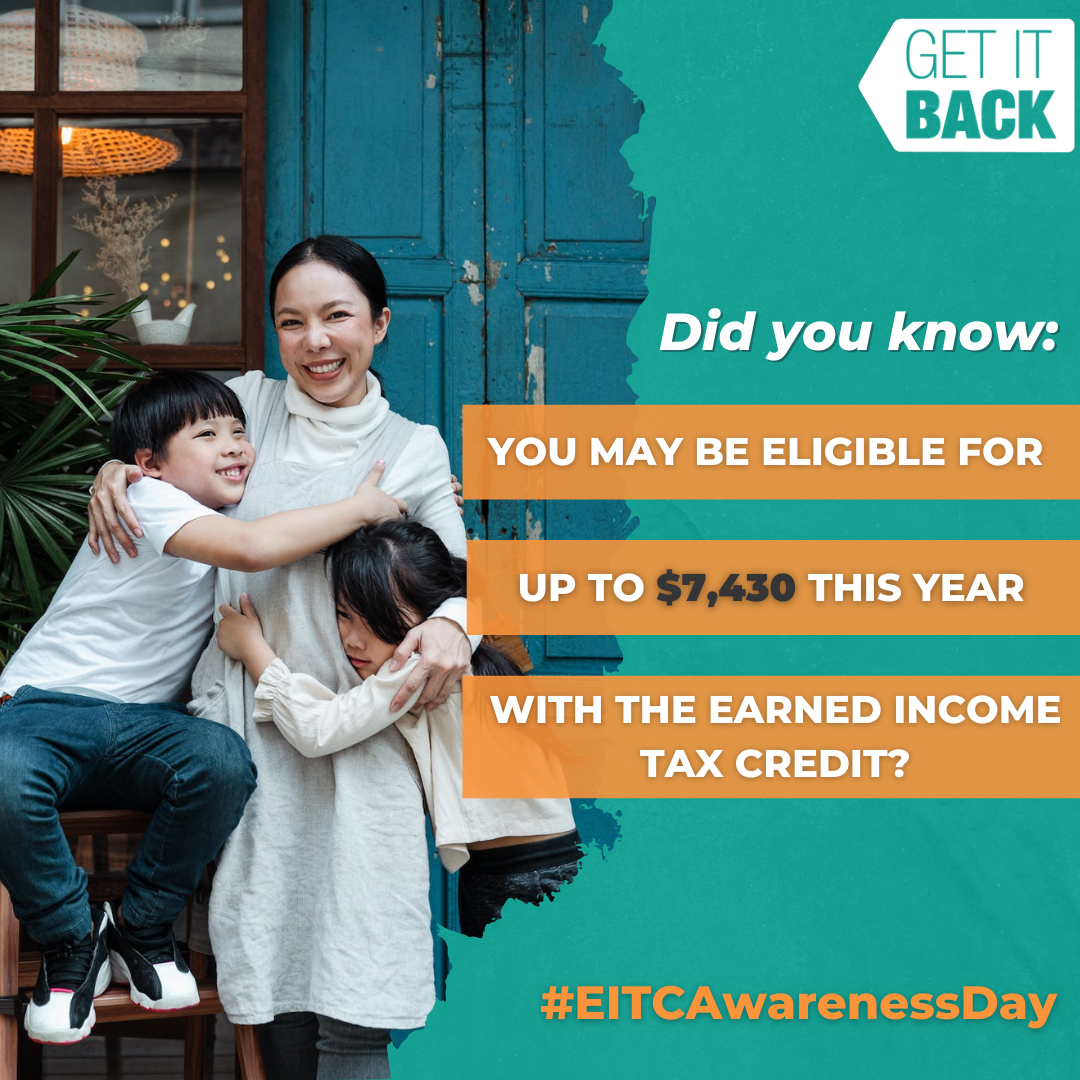By Jake Chang, 2024 Get It Back Campaign Intern
Friday, January 26, 2024, is the 18th annual Earned Income Tax Credit (EITC) Awareness Day! Organized by the Internal Revenue Service (IRS) and its partners, EITC Awareness Day is a chance to share information about the EITC through engaging community members and organizations, posting resources online, and hosting events.
The EITC offers working individuals and families with lower to moderate incomes support during tax time. The credit helps boost earnings to provide financial security. In 2023, approximately 23 million workers and families received about $57 billion from the EITC.
When the EITC is claimed with the Child Tax Credit (CTC), the impact increases. In 2018, the EITC and CTC lifted 10.6 million people above the poverty line, and reduced poverty for 17.5 million others.
You can make a difference through promoting the EITC. Here are 6 ways you can help.
1. Share resources with clients, partners, and media
The 2024 Get It Back toolkit provides a range of materials you can use to reach out to your community about the EITC and CTC, including a press release, call and text scripts, and flyers and mailers. These resources can be useful for both in-person and virtual events, from phone banking to reaching out to local media. Engage different networks to inform individuals, families, and organizations about claiming tax credits and connecting with free tax help.
2. Post graphics on social media
Check out our graphics library to post content on your social media channels. Make sure to use the tags #EITC and #EITCAwarenessDay!
3. Promote free tax filing services
Free tax filing services can help people get the most out of their tax return. With choices to file in-person and online, free tax filing is accessible and reliable. Consider sharing information about the following programs:
- Volunteer Income Tax Assistance (VITA) and Tax Counseling for the Elderly (TCE) are IRS-sponsored programs that provide free tax preparation for those who earn less than about $60,000. Find a location near you.
- Get Your Refund is a fully virtual service created by Code for America in partnership with VITA. Filers can connect with an IRS-certified volunteer or file their own taxes. Services are available for those who earn under $66,000 (or under $79,000 if filing on their own).
- MyFreeTaxes helps people file their taxes for free online. The site offers free step-by-step guidance and help through an online chat. There is no income limit to file your own taxes. If one earns less than about $60,000, they can choose to have your taxes prepared by an IRS-certified volunteer tax preparer.
4. Incorporate outreach for IRS Direct File
Direct File is a new free tax filing tool the IRS is piloting in 12 states this tax season. It will allow eligible taxpayers to file their federal 2023 tax return electronically, directly with the IRS beginning March 2024.
If you live in Arizona, California, Florida, Massachusetts, Nevada, New Hampshire, New York, South Dakota, Tennessee, Texas, Washington state, or Wyoming, you have another free tax service to promote!
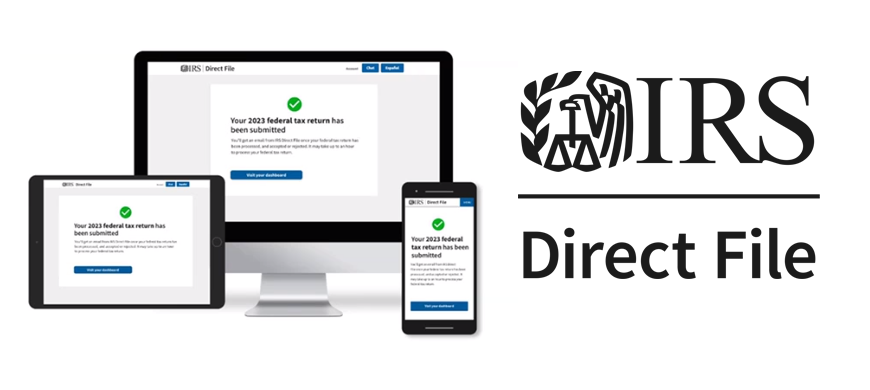 5. Post these blogs
5. Post these blogs
Share our blogs on what people need to know about the EITC and tax filing in 2024.
- What You Need to Know to File Taxes in 2024
- How much are the EITC and CTC worth in 2024?
- What to Bring to a Tax Appointment (Tax Checklist)
- Qué documentos llevar a una cita para realizar sus impuestos (lista de verificación para impuestos)
6. Spread the word about other refundable tax credits
Besides the EITC, there are several tax credits that eligible taxpayers can claim during tax season. Include the following credits with your EITC outreach efforts.
- Child Tax Credit (CTC): This credit allows eligible parents and caregivers who earn at least $2,500 to claim up to $2,000 for each qualifying child under 17 on their tax return.
- American Opportunity Tax Credit (AOTC): The AOTC helps reduce the costs of paying for college. Filers can claim a credit worth up to $2,500. Up to $1,000 of the credit is refundable.
- Recovery Rebate Credits (stimulus checks): People who were eligible for and didn’t get the first, second, or third stimulus checks issued during the COVID-19 pandemic can still claim them. For the first and second stimulus payments (claimed as the 2020 Recovery Rebate Credit), people must file a 2020 tax return by May 17, 2024.
Need more ideas?
Check out these resources from partner organizations who are working to expand awareness of the EITC. Remember, sharing about the EITC isn’t limited to one day. Use these resources to continue your outreach year-round.
- Prosperity Now’s 2024 EITC Awareness Day Resources include social media messaging, graphics, and state reports.
- The Internal Revenue Service (IRS) has EITC Awareness Day resources, a EITC Partner Toolkit, and marketing materials you can use to share about the EITC and get others involved in outreach efforts.
- National League of Cities created an EITC Awareness Day Toolkit for municipal leaders to increase EITC visibility with a sample press release, partner emails, and a city proclamation.

